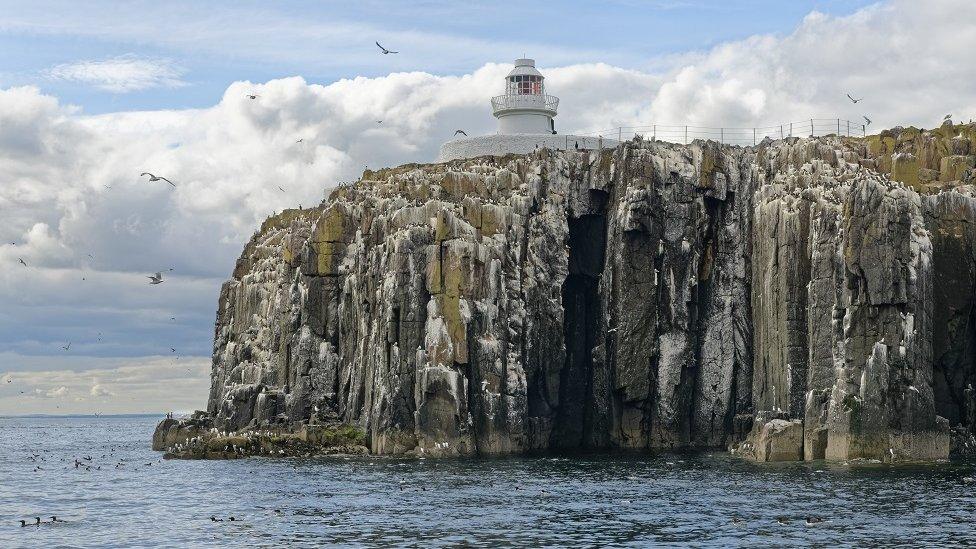Farne Islands bird flu fears prompt visitor restrictions
- Published
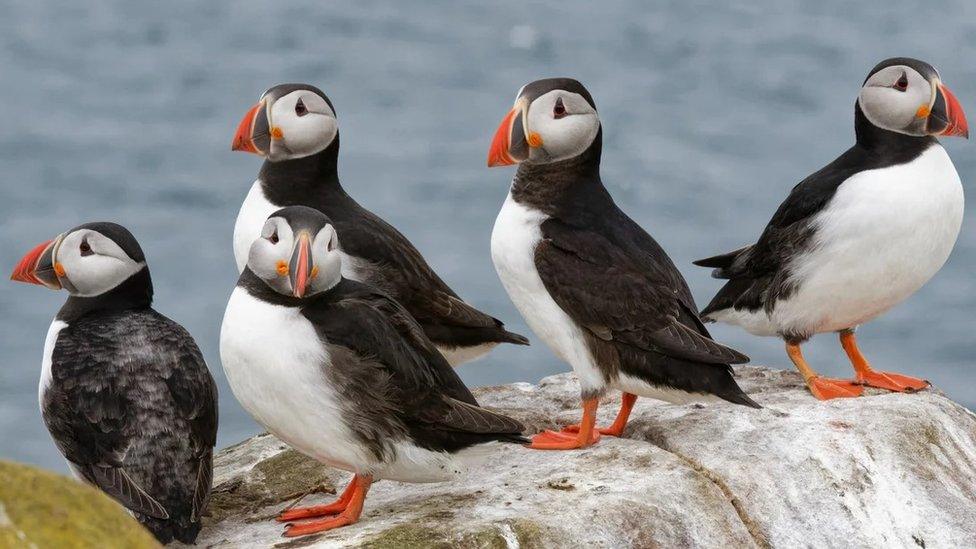
Species such as puffins will return to the Farne Islands shortly for breeding season
Visiting restrictions are to again be enacted on the Farne Islands amid fears bird flu could hit colonies once more.
The National Trust said visitors would not be able to land from April when the 2023 breeding season gets under way.
It said there was a "strong likelihood" significant numbers of avian flu cases would be seen.
More than 6,000 carcasses were removed from the islands off the Northumberland coast last year, with gulls, kittiwakes and puffins among species affected.
However, the trust believes that number is "just the tip of the iceberg" as many dead birds in the cliff colonies will have fallen into the sea.
It said restricting visitor access to Inner Farne and Staple islands - as it did last year - would be "prudent", although sail tours around the islands by local boat operators would continue to run.
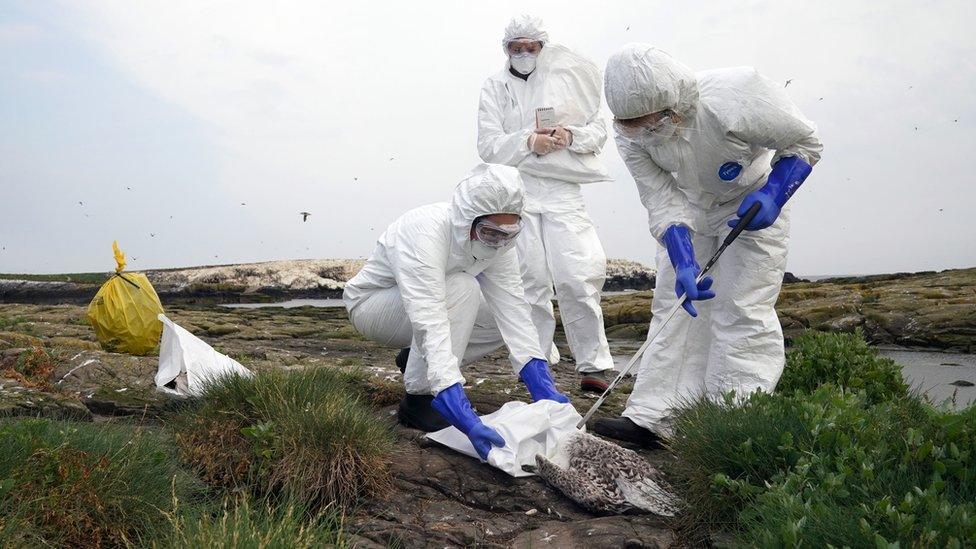
Experts warned the Farne Islands' colonies could take years to recover after being hit by bird flu in 2022
Farne Island lead ranger Harriet Read said it had been "distressing" to see so many birds impacted last year.
"Sadly, there is a strong likelihood that we will see thousands of cases of bird flu again this year, and we are gearing up to monitor the situation very closely," she said.
"Many of the species we care for are rare and struggling already due to climate change.
"Therefore, we want to try to mitigate the impact of this disease by limiting human access, and limit disturbance - which can cause stress to sick birds and potentially increase the transmission of bird flu - to see if this will help make a difference to the spread of the disease."
A decision will then be taken on whether restrictions can be lifted later in the season.
A National Nature Reserve, the Farne Islands are home to about 200,000 seabirds.

Follow BBC North East & Cumbria on Twitter, external, Facebook, external and Instagram, external. Send your story ideas to northeastandcumbria@bbc.co.uk, external.
Related topics
- Published18 August 2022
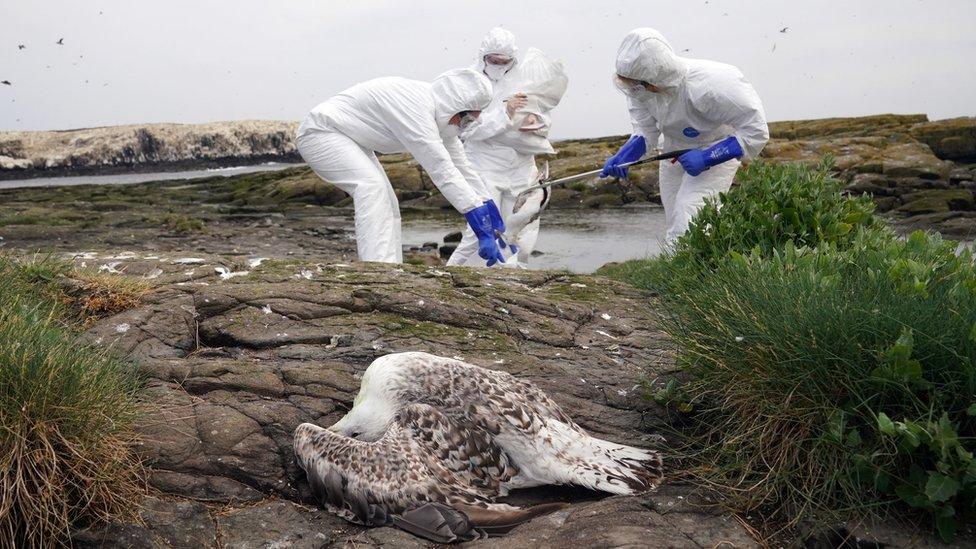
- Published25 July 2022
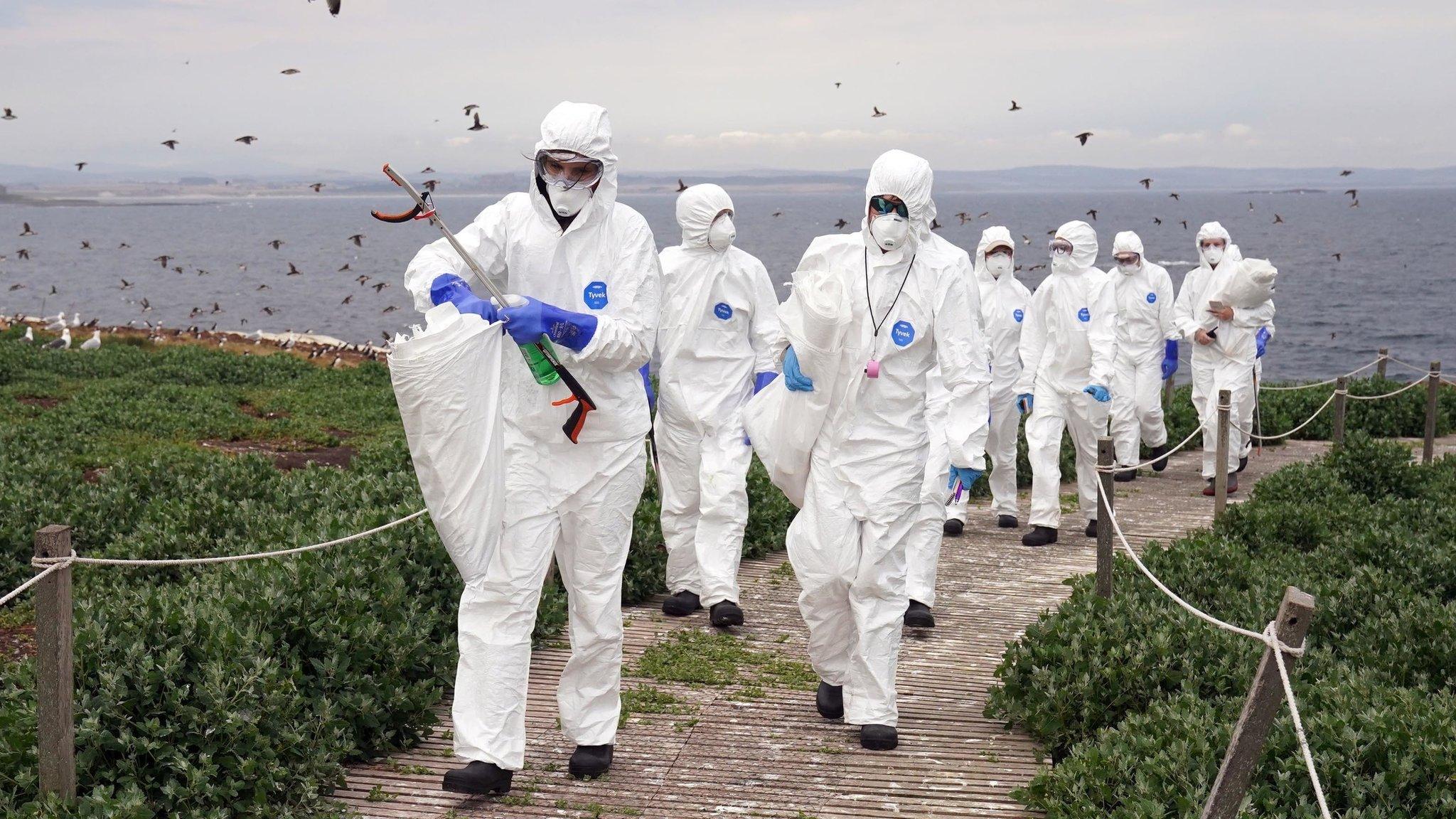
- Published1 July 2022
